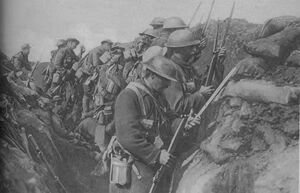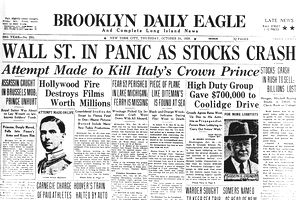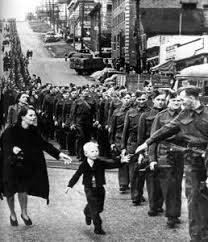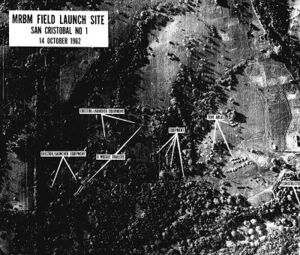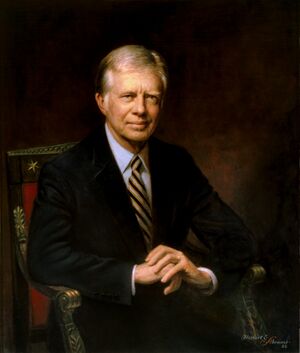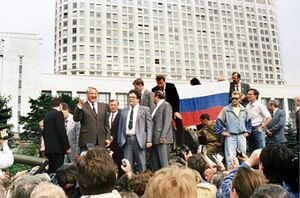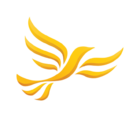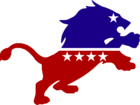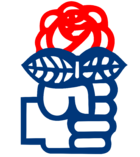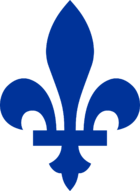Columbia: Difference between revisions
No edit summary |
No edit summary |
||
| (One intermediate revision by the same user not shown) | |||
| Line 7: | Line 7: | ||
|national_motto = ''A Mari Usque Ad Mare (Latin)'' | |national_motto = ''A Mari Usque Ad Mare (Latin)'' | ||
|englishmotto = "From Sea to Sea." | |englishmotto = "From Sea to Sea." | ||
|royal_anthem = [https://www.youtube.com/watch?v= | |royal_anthem = [https://www.youtube.com/watch?v=4zEmsC5520c "God Save the Queen"] | ||
|image_map = Map of Columbia.png | |image_map = Map of Columbia.png | ||
|map_caption = Dominion of Columbia, ''in red'' | |map_caption = Dominion of Columbia, ''in red'' | ||
| Line 29: | Line 29: | ||
|leader_name2 = H.E. James Earl Carter Jr. | |leader_name2 = H.E. James Earl Carter Jr. | ||
|leader_title3 = [[Prime_Minster_of_Columbia|Prime Minister of the Dominion of Columbia]]|Prime Minister]] | |leader_title3 = [[Prime_Minster_of_Columbia|Prime Minister of the Dominion of Columbia]]|Prime Minister]] | ||
|leader_name3 = | |leader_name3 = Rhéal Fortin | ||
|legislature = [[Parliament of the Dominion of Columbia|Parliament]] | |legislature = [[Parliament of the Dominion of Columbia|Parliament]] | ||
|upper_house = [[Senate of the Dominion of Columbia|Senate]] | |upper_house = [[Senate of the Dominion of Columbia|Senate]] | ||
Latest revision as of 20:01, 24 August 2021
This article is incomplete because it is pending further input from participants, or it is a work-in-progress by one author. Please comment on this article's talk page to share your input, comments and questions. Note: To contribute to this article, you may need to seek help from the author(s) of this page. |
Dominion of Columbia | |
|---|---|
| Motto: A Mari Usque Ad Mare (Latin) "From Sea to Sea." | |
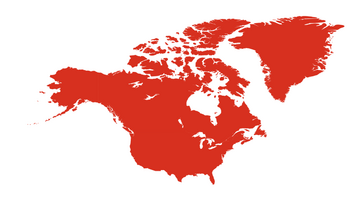 Dominion of Columbia, in red | |
| Capital | District of Cambridge |
| Largest city | New York City |
| Official languages | English
French |
| Recognised regional languages | Spanish Italian |
| Religion | Secular State |
| Demonym(s) | Columbian |
| Government | Federal Partliamentary Constitutional Monarchy |
• Her Majesty | Queen Elizabeth II |
| H.E. James Earl Carter Jr. | |
| Rhéal Fortin | |
| Legislature | Parliament |
| Senate | |
| House of Commons | |
| Independence from the United Kingdom | |
• First Colony Established | 1607 |
• British North America Act | July 2nd, 1776 |
• Constitution Act | September 1st, 1946 |
| Population | |
• 2010 census | 362,352,257 |
| GDP (PPP) | estimate |
• Total | $20,241,000,000.00 |
| Currency | Columbian Dollar ($) |
| Driving side | right |
Columbia, officially known as the Dominion of Columbia, is a country located in most of North America only bordering Mexico to the south. It consists of 27 provinces one territory and a federal district. The Dominion of Columbia has the third highest population in the world, and is one of the most racially and ethnically diverse nations in the world shaped by centuries of immigration. The Dominion officially gained independence in 1946, although it is still apart of the British Commonwealth and Queen Elizabeth of the United Kingdom is still the official head of state of the country.
Columbia is officially governed by Her Majesty Queen Elizabeth and is a parliamentary constitutional monarchy, consisting of 27 provinces one terriroty and a federal district. The capital of the country is the District of Cambridge, while the largest city in the country is New York. The District of Cambridge is the governmental hub of the nation, being home to the executive, legislative, and judicial branches. Columbia contains an executive branch led by the Prime Minister and his/her government, a legislative branch led by Parliament with the lower house of the House of Commons and the upper house of the Senate and finally a judicial branch led by the Senator Cheif Justice. The Prime Minister works at the pleasure and discretion of Her Majesty, although in her absence a Governor-General is appointed to assume official royal duties. This position, as well as the oversight of the British royal family, is now seen as a formality and Columbia is a sovereign independent state.
Etymology
The name "Columbia" refers to Italian explorer Christopher Columbus, who was the first European explorer credited with reaching the New World and setting foot on North America. Christopher Columbus' discovery of the New World led to a scramble of European powers colonizing the new continent(s). Columbus' mixed past and history in regards to indigenous populations has raised questions about retaining the nation's name, although no significant or noteworthy action has been taken thus far. Provinces and cities are named mainly after three different groups: the English (who colonized most of the Dominion of Columbia stretching from the Atlantic Coast to the Northwestern territories), the French (who colonized the middle of America, stretching from Montreal to New Orleans), and the indigenous population (who inhabited all of the land of Columbia prior to European settlement). Names referencing Spanish and Mexican origin are also abundant, due to the proximmity and history of Spanish (and then later Mexican) territories in southwestern Columbia.
History
Pre-European Settlement
Prior to European settlement, the lands of North America consisted of hundreds of native, indigenous tribes each with varying languages, culture, and religions. Indigenous peoples entered the region nearly 12,000 years ago through a land bridge from Siberia in the now Bering Strait, travelling from Siberia to Alaska. Ever since that period, the continent has been isolated from the rest of the world. Societies in pre-European America developed advanced agriculture, state societies, and grand architectural projects. The military and warfare aspects of these tribes however was severely lacking in strength in comparison to European settlers and colonizers.
British and French Colonization
The first Europeans to arrive in the contiguous United States were Spanish conquistadors and explorers which arrived in the Caribbean sea and the southern tip of Georgia. One such explorer was Christopher Columbus, for when in 1493 he was accredited as the first European to set foot on the continent (landing in the Bahamas and Puerto Rico), which is where the Dominion would get its name from. The French established their own colonies as well along the Mississippi River, cutting the English colonial territories in half. Successful English colonies included the Jamestown in 1607 and Plymouth in 1620.
By the mid 18th century, North America was divided into three main colonizers - Spain, France, and Great Britain. In a vast majority of the territories that would make up now Columbia however, it was a split between the French and the British. The "Thirteen Colonies" - consisting of Great Britain's atlantic possessions, were treated as overseas dependencies. Great Britain also controlled the colony of Rupert's Land, further to the northwest near modern-day Saskatchewan. French overseas dependencies stretched from modern-day Quebec to Louisiana.
Growing Dissent within the Colonies
The Thirteen Colonies' relationship with their mother country of Great Britain worsened significantly through the mid-18th century. Following the French and Indian War which lasted 9 years from 1754 to 1763, the French North American colonies along the Mississippi river were transferred into British control. Although this was a victory for the British, they had also procured significant debt and were in the midst of a financial crisis. The crown under King George III saw the Thirteen Colonies as partly responsible, as most portions of the war (excluding sections of which fought in Europe) were fought in the protection of aforementioned colonies. The crown did such under strict, unpopular, and unapologetic taxes on anything from sugar to stamps. Dissent in the colonies led to a general anti-British sentiment, peaking in what was dubbed the Boston massacre, when British soldiers opened fire on a mob of settlers, angered and enraged at the British. After throwing clubs and stones, one soldier shot the first shot which led to the others following suit. This event was widely publicised throughout the colonies, and significantly brought sentiment against Britain.
With a steady increase of rebellious actions, with American patriots burning the HMS Gaspee in 1772, and the dumping of 92,000 pounds of tea into the Boston Harbor in 1773, Great Britain responded with a series of punitive acts to punish the Thirteen Colonies for their disobedience. The first were passed in 1774, ending the Colony of Massachusetts' local governance and restricting Boston's commerce. Colonists up and down the Thirteen Colonies in turn responded to the punitive actions, referred to as the "Intolerable Acts" with additional rebellion. Many top officials in the colonies, hoping to end violence across the colonies and get Britain to stop their retaliatory measures, convened the Continenal Congress.
The Continental Congress
The Continental Congress was summoned in early 1776 to encourage dialogue between the British crown and the colonies, prevent futher violence, and repeal the punitive and intolerable acts lobbied against the colonies. An impassioned plea to King George III from the Congress convinced the monarch sufficiency and, to the dismay of the British Parliament, which sought no compromise and further punitive action, offered the Continental Congress an offer regarding the fate of the thirteen colonies. The Continental Congress was offered the status of a home rule dominion, able to rule its internal affairs while still being loyal and under the crown of Great Britain. The British North America Act was subsequently written and proposed to both the Continental Congress and the British parliament in Westminster in 1776. With co-operation between both entities, it passed both the Congress and Parliament (although narrowly being passed in parliament). The British North America Act officially went into effect and the Dominion of Columbia officially established on July 2nd, 1776.
Early Years of the Dominion
Abiding by the British North America Act of 1776, the first elections were to be held in November of 1776. Many across the Dominion put their bids for the new government, the first chance to acheive true representation. King George III appointed the first Governor General of Columbia, General William Howe. The British North America Act calmed immediate violence and outrage against the British, but instead formed an anti-monarchy and anti-British faction which sought to remove the monarchy's presence democratically using the British North America Act. Anti-monarchy candidates were sprung into contention in the first 1776 election.
After election day 1776, members of parliament usually aligned into three groups:
- The Whigs, a liberal bloc similar to the Liberal Party formed in Westminster. It's first leader was John Adams of Massachusetts.
- The Tories, a jacobite bloc mirroring the policies of the Tories in Westminster. It's first leader was General Benedict Arnold of Connecticut.
- The Democratic-Republicans, an independence bloc opposing Westminster and seeking to cut British-Columbian relations. It's first leader was Thomas Jefferson of Virginia.
Governor-General William Howe appointed John Adams of the Whigs to become Columbia's first prime minister, ignoring that the Whigs had not achieved a majority of MPs. The Senate was then filled with 72 new appointees, including first Speaker of the Senate General George Washington. King George III would later personally grant General Washington the title of Lord Mayor of the new capital (whatever it would become) and Earl of Mount Vernon for his life work as a statesman and Speaker. By 1783, both the Governor-General's residence, as well as the beginnings of the capital of Columbia, would have been underway. The Dominion chose to create a planned city near northern Virginia, which they named the District of Cambridge.
The War of 1812
By 1812, tensions between Great Britain and France spilled over into full-blown conflict. Despite the French and Indian War over 50 years prior, the French still held their Louisiana colonies and territories near the mouth of the Mississippi. Great Britain highly urged the government to intervene and assist Great Britain by invading the French colonial territories, and such a proposition passed in a very close and controversial vote in Parliament. The Dominion of Columbia then formally entered the war on the side of Great Britain.
With British-French fighting spilling over in mainland Europe, Paris fell into unrest as the government focused the entire coffers on the war. It quickly sunk into deep amounts of debt and a financial crisis ensued causing any and all stability in the French government to plummet with it. With the prospect of full blown revolution and collapse of the French government, the French quickly signed the Treaty of Bordeaux, which among other things ceded all of the French North American territories to Great Britain. This effort would be in vain, as France would later collapse into revolution and have the monarchy deposed.
The 1812 Expansion and 1816 Election
King George III officially allowed the admission of the former French territories of the Mississippi, creating new the provinces of Louisiana, Ozark, and Iowa. Further settlement allowed the admission of the Dakota and Minnesota territories into the Dominion in the same year. Due to the admission of all of France's former colonies, the number of Francophones in the Dominion skyrocketed. Many stood for election in 1816, hoping to represent the interests of the French in parliament. Many more won. As the number of Francophone MPs grew, the three major parties reformed their policies to accomodate such changes. The French MPs formed their own Liberal Party in parliament, similar to the already existing Liberal Party but this one advocating for greater Francophone rights and led by Jacques Villeré. This party is seen as a precursor to the modern Bloc Français.
The Indian Acts
Following the 1836 Parliament election, Parliament passed a series of acts and laws colloquially called the Indian Acts. These acts mainly had to deal with the native, indigenous populations still residing within the lands of the Dominion of Columbia. The Indian Acts, in summary, did the following:
Indian Acts of 1836, Parliament Archives of the Dominion of Columbia
The Indian Acts are still invoked in some practical uses today, inciting calls from some political parties to repeal them. While the prohibition of native languages is no longer enforced, French speaking provinces still maintain language schools and natives are barred from voting and running for political office unless they are from the province of Nunavut. Such disenfranchisement has sparked calls for repeal of the Acts, but the Supreme Court found in a split decision that the Indian Acts are de-facto a part of the Dominion of Columbia constitution. Such then requires a change by constitutional amendment to remove it, which has not succesfully been done.
Mexican-Columbian War
Under Prime Minister James K. Polk and the Liberal Party, Parliament is urged into a war against Mexico to expand westward in Columbia's "Manifest Destiny." The idea was rooted in the belief that it was God's will and Columbia and Great Britain's destiny to expand westward and control sea to shining sea. Parliament, at the urging of PM Polk, agreed to the declaration of war and a state of war was declared. Great Britain assisted with the conflict with arms and funding, but did not get involved militarily and directly. Mexico pondered a declaration of war after a brief confrontation with a British naval vessel, but decided against it. The war lasted only a mere 2 years before the Mexican government tendered its surrender, in which the Dominion of Columbia grew once more. In 1850, Queen Victoria admits the new territories as the official provinces of New Mexico, Deseret, and California. Parliament then approved a mass deportation of "Latino persons" from these provinces, creating the "Trail of Tears" as thousands of Latinos were forced to leave their homes and communities to be deported to Mexico. This received international condemnation from both Mexico and the faltering Spain, while Great Britain stayed quiet about the affair.
World War I
Under Prime Minister Woodrow Wilson, the Dominion of Columbia joined their British allies at the outbreak of war. As Great Britain declared war on the German Empire for their invasion of Belgium, Parliament approved a declaration of war against the German Empire to follow suit. It passed in a supermajority as the population was riled up with widespread support for war.
With early intervention by the Dominion of Columbia and other British allies, the war was ended by 1918. Thousands of Columbian troops died at the Battle of Gallipoli, where the campaign to quickly capitulate the Ottoman Empire turned to stalemate and then crushing defeat for the Entente. The blistering defeat at Gallipoli crushed into war support across Columbia and other British dominions, with a large anti-war faction starting to appear following it. With it, a resurgance of anti-British, pro-independence sentiment began to rise once more.
The Entente went on to be victorious in the First World War. The war's immediate aftermath was a questioning among many on why Columbia fought in the war in the first place. However many in the population, especially those fiercely patriotic to the French or English, supported the conflict all the way through as a form of support for the motherlands. The war was actually one of a few events in Columbian history which unified both the French and English speaking populace towards a common goal. Prime Minister Woodrow Wilson pursued what he called his "Fourteen Points" at the Peace of Versailles, which he thought were the only way Europe could achieve long-lasting peace. The points emphasized self-determination of the nations of Europe free from colonial ambitions, which many back home in Columbia viewed as subtle jabs at the United Kingdom. Prime Minister Wilson denied this, however the points would be wildly circulated as a reasoning for further seperation from Britain.
The Roaring 20s and The Crash of 1929
Following World War I, the Dominion of Columbia enterd a period of unprecedented economic growth and purchasing power. New inventions and appliances became widespread, and the average Columbian's wealth grew substantially. On the foreign front, Columbia excluded itself from foreign affairs and kept friendly relations with most nations of the world, content in focusing on internal affairs. The unorecedented growth could not last for long, however. A storm years in the making decended upon Wall St. on October 24th, 1929 nicknamed "Black Thursday."
Panicked shareholders and investors sold nearly 13 million shares on the New York Stock Exchange. In one single day, investors suffered C$5 billion in losses. The ensuing stock market crash lasted 5 days and plunged the Dominion, as well as the rest of the world, into economic turmoil. The heaviest hit were Great Britain, France, and Australia, being so inter-connected with the Columbian economy. The ensuing Great Depression led to widespread unemployment and food shortages. Thousands became homeless, and hundreds of thousands more lost all the wealth to their name. The ensuing crisis helped boost the Labour Party into relavance from relative obscurity. The Labour Party would go on to win a landslide in the 1932 election, propelling Franklin Delano Roosevelt into office as Prime Minister and even having non-Francophone MPs win in Francophone areas.
Under Prime Minister Roosevelt, the Labour government enacted the "New Deal," creating social security, workers rights protections, as well as reforming Wall St., banks, and landlords and rent. Slowly but surely the government reforms and New Deal helped alleviate the effects of the Great Depression and economic shutdown.
World War II
Upon Neville Chamberlain's declaration of war on the German Reich, the Dominion of Columbia immediately followed with a declaration of war against the Germans on September 10th, 1939. Throughout the extent of the war, the government sought to fight a war in Europe exclusively and "avoid getting bogged down in Asia," especially regarding the high tensions between the Japanese Empire and Dominion. The invasion of Hong Kong on December 8th, 1941 nearly brought the Dominion to war but some of the more anti-British MPs prevented the government from declaring war. The Bloc Français sought war ever since the fall of French Indochina, and following the sinking of a Columbian-Francophone oil tanker in the Eastern Pacific by Japan, the House of Commons finally approved a war declaration against the Japanese Empire. The war continued until 1945, when unannnouced to the British the Columbians developed nuclear weapons, deploying them on Kyoto and Nagasaki. Japan surrendered to the allied powers shortly therafter.
The Dominion of Columbia was largely credited with saving the Allies from certain doom by the German Reich, with the additional Columbian reinforcements helping turn the tide of the war. On the front for Europe, too, Columbian forces helped prevent the Fall of Paris for months before they had to tactically retreat out of the country. Columbian forces were instrumental in the Battle of Normandy, Battle of the Bulge, and the Battle of Aachen. Upon completion of the war in 1946, it was clear that the Dominion had now usurped the overlord in power - both militarily and economically. In the Potsdam Agreement, Prime Minister Clement Atlee accepted to Columbian Prime Minister Harry Truman the will of full Columbian independence, that is preventing any legal sovereignty still remaining from the United Kingdom to the Dominion. PM Truman returned to the District of Cambridge with the Constitution Act, offiically giving the Dominion of Canada complete independence. It passed in flying colors, with the Francophone MPs cheering loudly.
Cold War
Immediately following the end of World War II, a cold war ensued between the Soviet Union and the Western Powers. This Cold War was driven by a divide between constitutional monarchy and authoritarian communism, with a bitter divide between capitalist and communist economic systems also taking a lesser role. The entirety of Europe focused now not on just recovering from the worst war in human history but also defending themselves from either the Soviet Union or the newly formed NATO. Columbia and the United Kingdom jointly took the responsibility of "containing" the USSR, by fighting in foreign countries in indirect conflicts.
Espionage and intelligence operations were a focal point for both nations on getting an edge on the other. The Cambridge Project, the project which the United States government did in secret by some of the best nuclear physicists in the world such as Robert Oppenheimer to create the nuclear bomb, was a prime example. The Soviet Union tracked down many scientists on the project and got them to assist with their own nuclear program, so much so that the Soviets knew the exisence of the nuclear bomb before they were dropped on Kyoto and Nagasaki. A main focus of the KGB, the USSR's intelligence agency, was to promote Anglo-French tensions and stoke anti-monarchy sentiment. The effort's decade long work is disputed, with many Francophones stating that its effects were minimal and that in fact Francophones gained political strength on their own while non-Francophones have stated that it was actually quite effective in assisting Anglo-French tension.
Prime Minister John F. Kennedy had to deal with the most contentious part of the Cold War - Haiti. Haiti had undergone a violent communist revolution in the 1940s, now likely sponsored by the Soviet Union. The Dominion had attempted at multiple points for a counter-coup in Port-au-prince, multiple times unsuccesful and even strenghtening the communist regime's grip on the region. The Dominican Repubilc pressured both the Dominion and the United Kingdom for a joint invasion into Haiti, however the looming fear of Soviet intervention if an invasion happened avoided such support, at least in parliament.
U-2 spy plane reconnaissance missions over Haiti discovered the presence of inter-continental ballistic missiles, with the ability to strike any of the Dominion's major cities. This led to near nuclear war with the Soviet Union, as the Dominion and UK navies blockaded the country, preventing Soviet transports from reaching the island. Tensions were at an all time high until PM Kennedy phoned General Secretary Kruschev, promising to pull out nuclear weapons from Turkey if they did the same in Haiti. Kruschev agreed, and a nuclear war and international conflict was avoided. Prime Minister Kennedy was hailed for his efforts. Prime Minister Kennedy would later be assassinated on November 22, 1963 in a visit to New Orleans by a radical Francophone.
Under Prime Minister Harry Byrd, successor to PM Kennedy, Columbia intervened directly into the Vietnam war. Troops were recruited and drafted to fight the communist North Vietnam, and defend the right-wing authoritarian southern Republic of Vietnam. Despite assistance from Columbia, the United Kingdom, France, and others, South Vietnam was losing the war. Thousands of young men are killed in an overseas war, sparking nationwide protests against the government for its intervention. Anti-war sentiment reaches an all-time high, and along with it Francophones take the time to protest as well. A bombing in New Orleans that killed over 20 people was linked to a Francophone radical group, taking advantage of national unrest.
The 1980 election stood to be the most contentious election in Columbian history. National unrest was at the highest point in decades, and leaked KGB documents reported connections between the KGB and the Front de libération du Français, a marxist leninist radical group which operated in the Francophone territories of Columbia. During its operation from 1969 to 1981, it claimed responsibility in dozens of bombings and targeted killings. The FLF staged multiple strikes on the run up to the 1980 election, paralyzing the economy in the Francophone provinces, with Louisiana and Quebec in particular facing the economic brunt of the strikes. Eventually, the election occurred and the Democratic-Republicans swept the election and gained a plurality of seats with John B. Anderson being chosen as Prime Minister. Upon his meeting with the Governor-General, however, Governor-General James "Jimmmy" Carter rejected to form Anderson's government. Instead, the Governor General tapped Barry Goldwater to form a minority government. The stunning move sparked outright riots and violence against authorities across the Southern and Western provinces. In one event, 3 police officers were killed in an armed shootout with rioters.
To maintain law and order in the country, Governor-General Carter prorogued Parliament and assumed control of the Columbian military, deeming the rioting as an "insurrection against the authority of the state and the stability of the monarch." Martial law was enforced for 8 months, in which many civil liberties were suspended. It is the only instance in modern history that a sitting Governor-General assumed direct control of the government, and this period was nicknamed "The Dark Period" by many. It was very effective for USSR propaganda campaigns, which depicted Columbia as a tyrannical authoritarian state instead of a true democracy. Parliament was re-established by 1981, and martial law suspended. Governor-General Carter announced his retirement from the position citing "health problems" but many suspect it was instead the long-term loud public outcry against the Governor-General which forced his retirement.
Collapse of the USSR and End of the Cold War
The USSR, watching Columbia's internal instability, was a "ticking timebomb." Internal bloating of the bureacratic class led to vastly inefficient and gridlocked government, unable to provide for the simplest of public services. Mikhail Gorbachev sought the Presidency of the Soviet Union, in order to help reform the government before it "inevitably collapsed," but the Politiburo thought otherwise and was stacked with mainly hardliner, status-quo politicians. Instead, Gennady Yanayev was chosen as President and General Secretary of the USSR, focusing on a policy of status quo. According to former colleagues of Yanayev, he believed that the USSR would be victorious if it waited out the USA and stayed on a course of status quo.
A series of serious industrial mismanagements and the prospects of economic collapse sparked political violence and public outcry against the government. Massive protests rocked the country, most notably the Russian SSR. The Presidents of the SSRs of Estonia, Latvia, and Lithuania all declared independence in a joint statement on June 2nd, 1985 citing the government's failure to control the country and impending collapse of the Soviet economy. Two days later, a peaceful revolution struck East Berlin and East Germany experienced a peaceful coup d'eat as the pro-Soviet government was toppled. By the end of the week, Poland was calling for free and fair elections and Czechoslovakia expelled Soviet officials, peacefully breaking away from the Iron Curtain. Political upheaval erupted across all of Eastern Europe, and the reaction from Moscow was violent, at best. President Yanayev demanded a full military response to the declarations of independence in the Baltic, and threatened war to the Eastern European nations which were "harming the interests of the Soviet Union."
On June 11th, 1985 riots and protests swept Moscow, and multiple tank batallions ordered to quell the Baltic SSRs turned on the government swearing loyalty to Russian president Boris Yeltsin.Outside of the Russian Federation building, Boris Yeltsin declared the Soviet Union to be "dead" and the independence of the Russian Republic, in order to save the economy and stability of the territories of the USSR. Tanks and troops rolled through Moscow, surrounding the Kremlin. A short standoff occurred before President Yanayev surrendered, and on National Television announced the dissolution of the Soviet Union. He was later arrested, but acquitted from any charges. By the end of the day, all the constituent nations of the USSR had declared independence or seceded. Prime Minister Martin Mulroney spoke with Boris Yeltsin multiple times, congratulating him and the Russian people.
Contemporary History
In 1990, Iraq under Suddam Hussein invaded the Republic of Kuwait. Columbia responded, with Prime Minister George H.W Bush lobbying Parliament to approve an invasion to restore Kuwaiti independence. It passed with large margins and was broudly popular among the populace, crossing party lines. Throughout the invasion, the population was supportive of the conflict and patriotism was at an all time high. The operation was an all around success, with the Iraqi government surrendering after five months and Kuwait's independence being restored. The regime of Saddam Hussein would later collapse following the defeat in the war, leaving a power vacuum that would cost countless lives.
In 2008, Columbia received her first Black Prime Minister, Barack Obama of the Labour Party. He announced that he will not seek another term in Parliament in the coming 2016 election.
Politics of Columbia
Columbia is a federal parliamentary constitutional monarchy, with a legislature consisting of a democratically elected lower house (the House of Commons) and a appointed upper house (the Senate). Columbia currently exists with a five-party system, with the existence of the Labour Party, the Liberal Party, the Conservative Party, the Democratic-Republican Party, and finally the Bloc Français.
Political Parties of Columbia
Liberal Party
The Liberal Party, established in 1828 by disgruntled Tories, now advocates for a centrist platform on economics and social issues, although it embraces the ideas of classical liberalism. According to the Liberal Party's 2016 platform, the party supports policies such as Universal Basic Income, the Green New Deal, and Medicare for All Who Want It (among other things). They currently hold a neutral stance on the monarchy.
Conservative Party
The Conservative Party, formed in 1856 by former Tories to counter the rapid growth of the Liberal Party, now advocates for a authoritarian right wing platform with a conservative platform on economics and social issues. It is staunchly pro-parliamentary sovereignty and pro-monarchy. According to the Conservative Party's 2016 platform, the party supports such policies as increasing the military budget, lowering taxes, maintaining the private sectors in regards to healthcare and transport, and a point-based immigration system (among other things).
Labour Party
The Labour Party, formed in 1900 with a coalition of worker unions, now advocates for a progressive platform on social and economic issues with factions in both the libertarian left and authoritarian left. It advocates for parliamentary sovereignty, and has taken an anti-monarchy stance in favor of a Columbian Republic. According to the Labour Party's 2016 platform, the party supports such policies as universal healthcare, tighter gun laws, cutting funds for the millitary and police in favor of green solutions, and a repeal to the Indians Act (among other things).
Democratic-Republican Party
The Democratic-Republican Party, formed in 1776 by Thomas Jefferson and other anti-British pro-independence patriots, is the oldest party in Columbia. It now advocates for small government and a libertarian platform on social and economic issues. The party takes a strong stance on individual liberties and free enterprise, and since its founding has been anti-monarchy. It supports such policies as maintaining privatization of healthcare and transportation, repealing business restrictions, and little to no government intervention in the economy.
Bloc Français
The Bloc Français, formed in 1816 by French nationalists seeking French representation, now advocates for a right-wing French-American nationalist platform and economic centrism. It is staunchly anti-monarchy, sometimes to the point of open hostility towards the institution. Considered the most controversial party in Columbia, it supports such policies like maintaining the Indian Acts, protecting the rights of Francophones (even in majority English areas), expand climate protections and social security net, and defend the right to bear arms (among other things).



